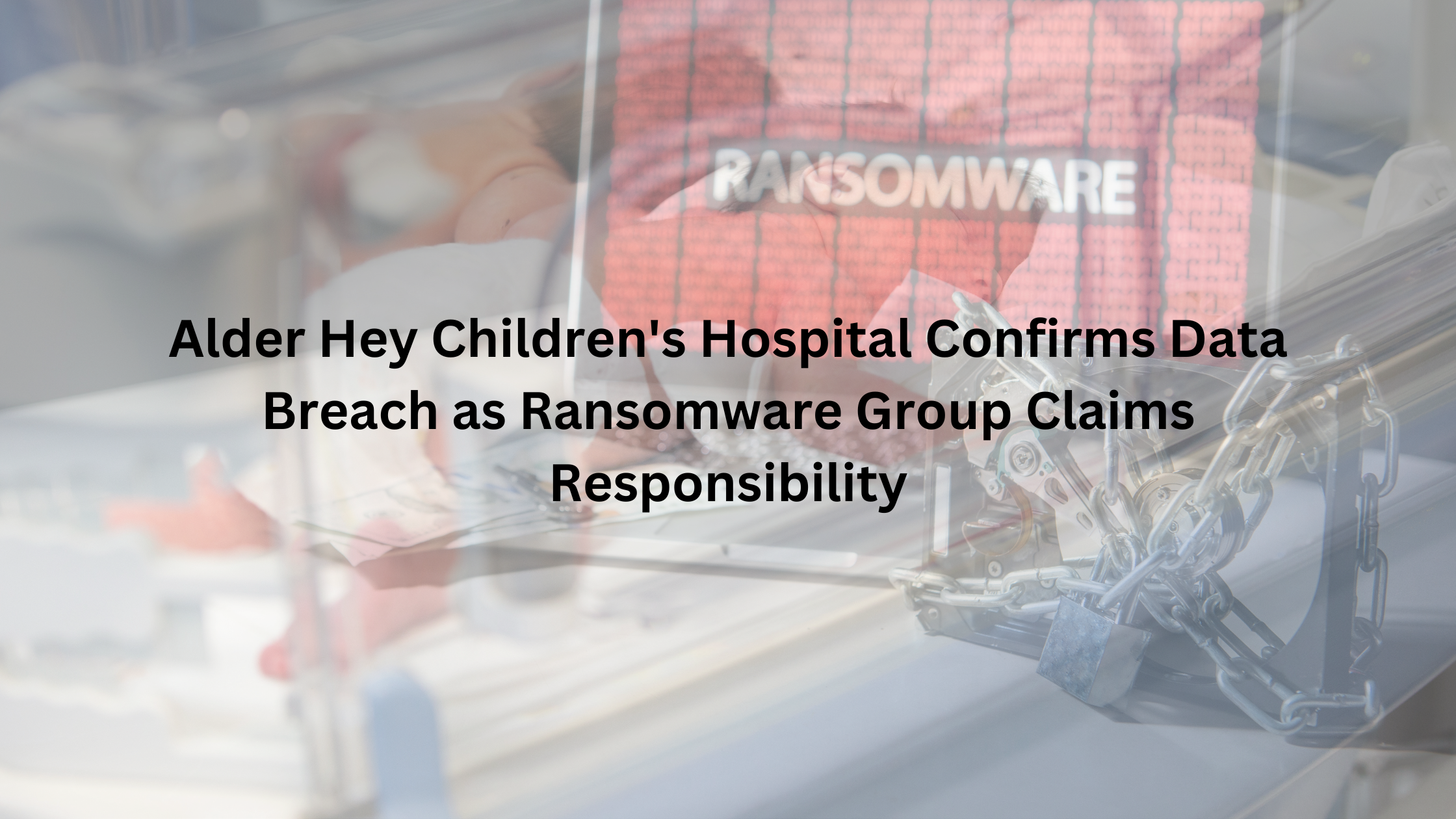Table of Contents
Alder Hey Children's Hospital Confirms Data Breach as Ransomware Group Claims Responsibility
Alder Hey Children's Hospital, one of Europe's busiest pediatric hospitals, has confirmed a significant data breach following claims by a ransomware group that it has obtained sensitive patient information. The incident, which also affects Liverpool Heart and Chest Hospital NHS Foundation Trust, has raised serious concerns about cybersecurity in the UK's healthcare system.
The INC Ransom group, known for targeting healthcare organizations, has claimed responsibility for the attack. The group posted 11 screenshots on the dark web, showcasing a sample of the allegedly stolen data. This information reportedly includes patient names, addresses, medical reports, donation details, and financial documents spanning from 2018 to 2024.
Alder Hey Trust acknowledged the breach in a statement, saying, "We are aware that data has been published online and shared via social media that purports to have been obtained illegally from systems shared by Alder Hey and Liverpool Heart and Chest Hospital NHS Foundation Trust." The hospital is currently working with partners to verify the authenticity of the published data and assess its potential impact.
In response to the incident, Alder Hey is collaborating closely with the National Crime Agency (NCA) and other partner organizations to secure its systems and take necessary steps in line with law enforcement advice. The hospital has assured the public that its services are operating normally, and patients should continue to attend their scheduled appointments.
The NCA confirmed its involvement in the investigation, stating, "We are aware of an incident affecting Alder Hey Children's Hospital and the Liverpool Heart and Chest Hospital. NCA officers are working alongside the National Cyber Security Centre and the hospital trusts to understand its impact."
Cybersecurity experts suggest that the attackers may have exploited a critical vulnerability known as CitrixBleed (CVE-2023-4966) in Citrix NetScaler ADC and NetScaler Gateway appliances. This vulnerability allows threat actors to bypass multifactor authentication and hijack legitimate user sessions.
The Alder Hey incident is not an isolated case. It comes just days after an unrelated cyberattack on WUTH, which forced the hospital to shut down its systems and revert to pen-and-paper methods. These incidents highlight the increasing vulnerability of healthcare institutions to cyber threats.
The UK's National Health Service (NHS) has been facing a challenging year in terms of cybersecurity. In June, a ransomware attack on Synnovis, a pathology services provider, led to the cancellation of thousands of appointments and procedures across multiple NHS trusts. The attack particularly impacted blood donation services by disrupting critical systems for blood matching.
The frequency and sophistication of these attacks have raised questions about the NHS's cybersecurity measures. In response, the UK government is planning to introduce the Cyber Security and Resilience Bill to Parliament in 2025, aimed at preventing attacks on critical public services like the NHS.
Despite these challenges, Mike Fell, executive director of national cyber security operations at NHS England, has stated that cyber attacks against the NHS "have plateaued, if not are on a downward trend." However, the recent incidents suggest that there is still significant work to be done to protect sensitive patient data and maintain the continuity of healthcare services.
As the investigation into the Alder Hey breach continues, the incident serves as a stark reminder of the critical importance of robust cybersecurity measures in healthcare settings. It also underscores the need for ongoing vigilance, investment in security infrastructure, and collaboration between healthcare providers, law enforcement agencies, and cybersecurity experts to safeguard patient data and maintain public trust in the healthcare system.
Visit our website to get cybersecurity updates like this, thesecmaster.com, and our social media page on Facebook, LinkedIn, Twitter, Telegram, Tumblr, Medium, and Instagram and subscribe to receive tips like this.
You may also like these articles:
Protecting Your macOS Device From Atomic macOS Stealer Malware- AMOS Malware
Essential Strategies for Managing Information Security Operations
Some Basic Definitions Required to Understand Cyber Incident Response
T-Mobile Confirms Breach in Chinese Cyber-Espionage Campaign
SafePay Ransomware Breaches Microlise, Steals 1.2 TB of Data
Anthony Denis
Anthony Denis a Security News Reporter with a Bachelor's in Business Computer Application. Drawing from a decade of digital media marketing experience and two years of freelance writing, he brings technical expertise to cybersecurity journalism. His background in IT, content creation, and social media management enables him to deliver complex security topics with clarity and insight.
